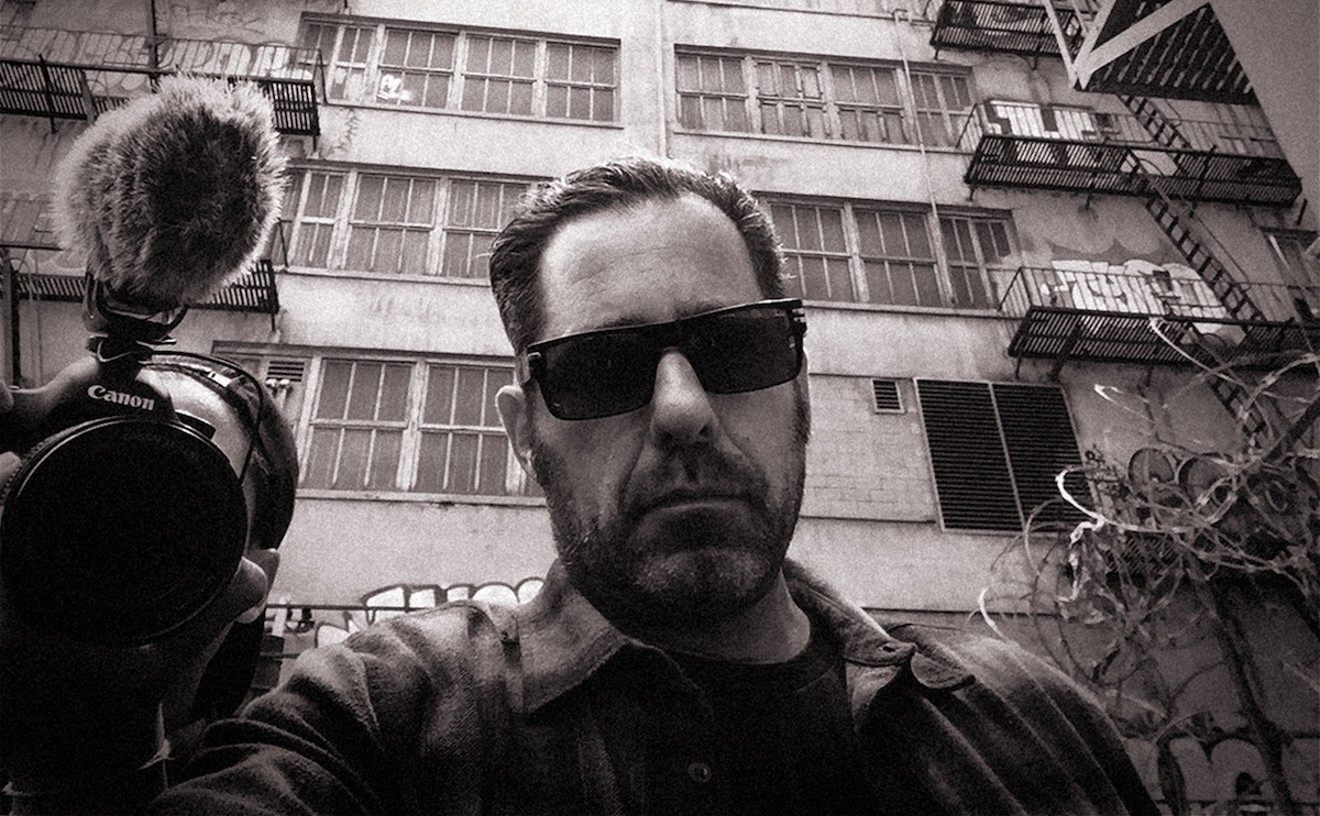Hugh Hefner is old. He's so old that Hollywood types have started projects based on his legacy. There are the rumors (tweeted by Hefner himself) that Diablo Cody is writing a movie about him. And one of the documentaries at this year's Miami Film Festival is Hugh Hefner: Playboy, Activist and Rebel by Oscar-winning Canadian filmmaker Brigitte Berman.
Sure, he's the silk-pajama-wearing publisher of one of America's longest running nudie magazines, but Hefner has also won every legal battle he's ever fought. And it's not just about naked women. He's fought for civil rights, privacy, and more liberal drug laws. As he recently told the New York Times: "The real obscenities on this planet have very little to do with sex."
We caught up with Berman, who will attend next week's screenings in Miami. She says Hef is very excited about the film debuting in a city that may also be home to the next Playboy club. Read on to learn about Hef's passion for civil rights, movie nights, and um, scrapbooking.
New Times: What inspired you to make this film?
Brigitte Berman: I had made a film about Bix Beiderbecke and he's Hef's
favorite musician of all time. He saw the film and loved it and we
started to correspond and that how's we became friends. I'd
occasionally come to the Playboy Mansion for movie nights whenever I
was in LA.
Tell us more about these movie nights.
On
Friday nights, 30 or so people come to watch films. It's always an old
movie and the average age is about 65 years old. On Saturday, he shows
another movie on the same theme or by the same director. Sunday nights,
it's a more recent movie, and it's a much bigger crowd with more like
70 people. Monday is manly night when Hef's male friends choose a movie
by vote.
When you say "manly" does that mean...
How did you learn of Hefner's history in activism?
I
had the same preconceived notions that everybody else has. But I met
this very charming man and we talked about jazz music and movies. I'm a
researcher at heart--I always want to know more about people, so I
automatically started to look things up and that's when I learned that
there was a much bigger side to him.
When I came to his 80th
birthday party at the Mansion, I felt he was celebrated just for the
one side of him. I decided to make a documentary about the other side
of Hef. He loved the idea. He gave me carte blanche and
creative freedom, which are very important to me as a documentary
filmmaker. Part of it was that he already respected me as a filmmaker
and liked my work and so he felt very comfortable.
Most people would assume that his activism had to do with censorship and antiquated sex laws. Was that the extent of it?
He
had a great deal to do with the whole Roe v. Wade changes in America,
but also civil rights. His 1959 Playboy Penthouse television shows
aired in a time when nobody showed black and white people together,
performers or audiences. He didn't think twice about it. Those were his
friends, and that's the way it was. Southern states would not buy the
show, but he didn't care. He's a man of incredible principles.
Screenwriter
and novelist Dalton Trumbo was blacklisted in the McCarthy era, and Hef
asked him to write an article for Playboy and Dalton assumed
it would be under his pseudonym. Hef said no we're publishing it under
your real name, it's not right. He received a letter from Ronald
Reagan, who was then head of the Screen Actors Guild in California. He was just one of those people. He
believed then and still does in human rights.
You had access to his personal archives. What was the most surprising thing you found?
Well, he has over 200 scrapbooks, and I read them all.
So Hef's into scrapbooking?
He
still does them. One of things I loved was the one about the Big
Bunny--the big personal plane he has with the bunny logo on the tail.
Hollywood friends asked him if they could use the Big Bunny to rescue
Vietnamese orphans during the war.There are these incredible
photographs of the bunny girls caring for these orphans on the plane.
Does it bother him that he's going to be remembered as just a pornographer in most people's minds?
It
doesn't bother him, but when I showed the film at the Mansion, Hef was in
tears. He was deeply moved. It also means a lot to people that know
him. But there's still the other side of him, and I show the Playboy
side, the girls, the centerfolds, and the Mansion. It's all there. There
are the two sides, which makes it a very fascinating and controversial
documentary.
I also talk to feminists like Susan Brownmiller
to whom Hef is the devil. I
believe everybody has the right to their opinion. All I wanted to do
with this film was put this unrealized reality of him up on the big
screen.
March 6th at 10 p.m. and March 9th at 9 p.m, Regal South Beach 18, 1100 Lincoln Rd., Miami Beach; 305-674-6766. Buy tickets here.










